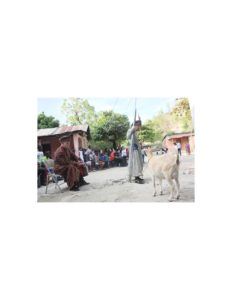Postcolonial and Postcommunist Convergences in Critical Curating: The case of Halka/Haiti
Can a curatorial reuse of a well-solidified piece of cultural heritage reveal the work’s critical potential to address the concerns East-Central European societies are facing today? To which extent can postcolonial and postcommunist experiences meet when faced with issues of race and identity? This presentation will address these question on the base of Halka/Haiti: 18°48’05″N 72°23’01″W, a project the author curated for the Polish Pavilion at the 56th Venice Biennale, in 2015, in collaboration with the artists Joanna Malinowska and C.T. Jasper. Halka/Haiti involved staging the Polish national opera Halka (1858) by Stanisław Moniuszko in Cazale, a Haitian village inhabited by descendants of Polish soldiers who had fought for Haitian independence in 1803. The project probed the relevance of 19th-century European artistic forms for the representation of national identities in a complex postcolonial context. The work was subsequently included in the collection of Zachęta—National Gallery of Art in Warsaw as well as the Hirshhorn Museum in Washington, DC.

C.T. Jasper and Joanna Malinowska, in collaboration with Magdalena Moskalewicz, Halka/Haiti: 18°48’05”N 72°23’01”W, 2015. Soloists from The Poznan Opera Theater
and audience during the performance in Cazale, Haiti, February 7, 2015. Photo: Damas Porcena (Dams), Haiti
